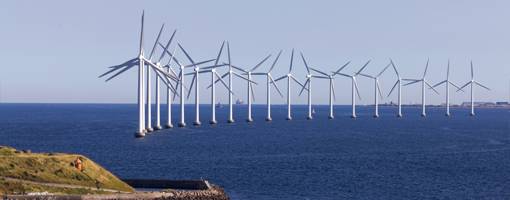Unthinkable just a few years ago, but the installed capacity of renewables has overtaken that of all fossil-fuelled technologies combined.
A third of Britain’s coal, gas and oil capacity has retired over the last five years, while the capacity of wind, solar, biomass, hydro and other renewables has tripled, now standing at a combined 42 GW, renewables now dominate Britain’s electricity generating infrastructure.
Reported in Imperial College’s Electric Insights Quarterly - Q3 2018, the good green news is however offset by fears of coal having replaced gas as the cheapest fuel for generating electricity, sparking fears about carbon emissions from the power sector rising.
At the start of this decade, Britain had seven times more generating capacity from coal, oil and gas as it had from renewables. But since their peak, 40per cent of Britain’s fossil-fuelled plants have retired as they reached the end of their lives or became uneconomical, meaning Britain now has just 41.2 GW of fossil capacity. Meanwhile, renewable capacity has grown six-fold since the start of the decade; so wind, solar, biomass, hydro and waste now stand together at 41.9 GW of capacity, outstripping fossil plants for the first time.
In fact the reach for renewables has outpaced the 1990s’ ‘dash for gas’. At its peak, Britain was building 2.4 GW of new gas-fired power stations each year. So far this decade, an average of 3.8 GW of new renewable capacity was built, made up of 1.0 GW of onshore wind, 0.8 GW of offshore wind, 1.4 GW of solar and 0.4 GW of biomass.
The report was authored by Dr Iain Staffell, Professor Richard Green, Dr Rob Gross, Dr Malte Jansen, Professor Tim Green and Luke Clark.
Latest News
-
Premier League and Comic Relief partnership aims to improve children’s mental health
-
Russell Hobbs launches food poverty campaign in schools
-
Tottenham Hotspur and charities launch film to tackle mental health stigma
-
Cardfactory funds homelessness charity’s team of psychologists
-
Bingo firm raises £300,000 for the Stroke Association
-
Sainsbury’s links up with Comic Relief for festive recipe campaign
© 2019 Perspective Publishing Privacy & Cookies







Recent Stories